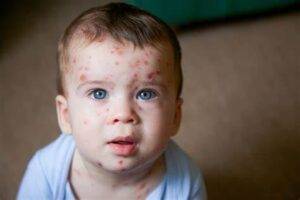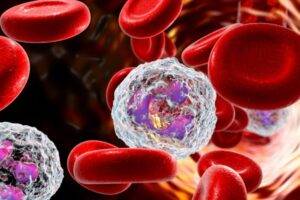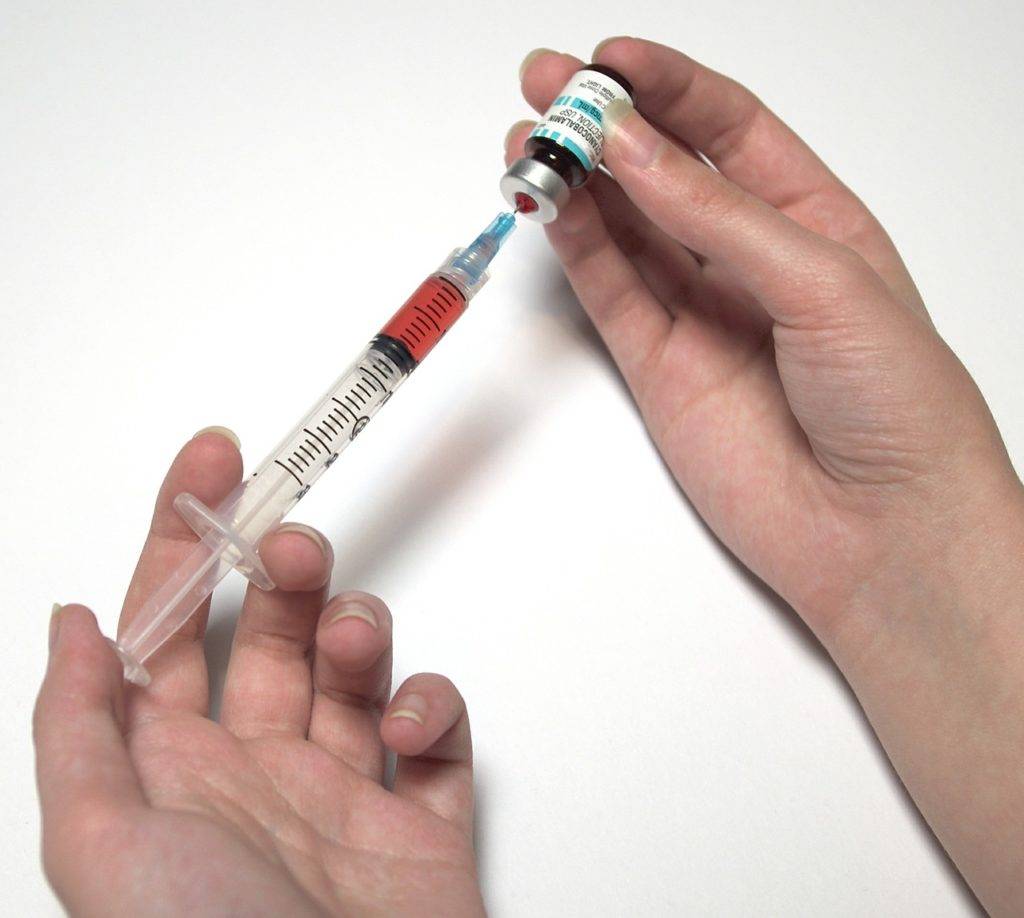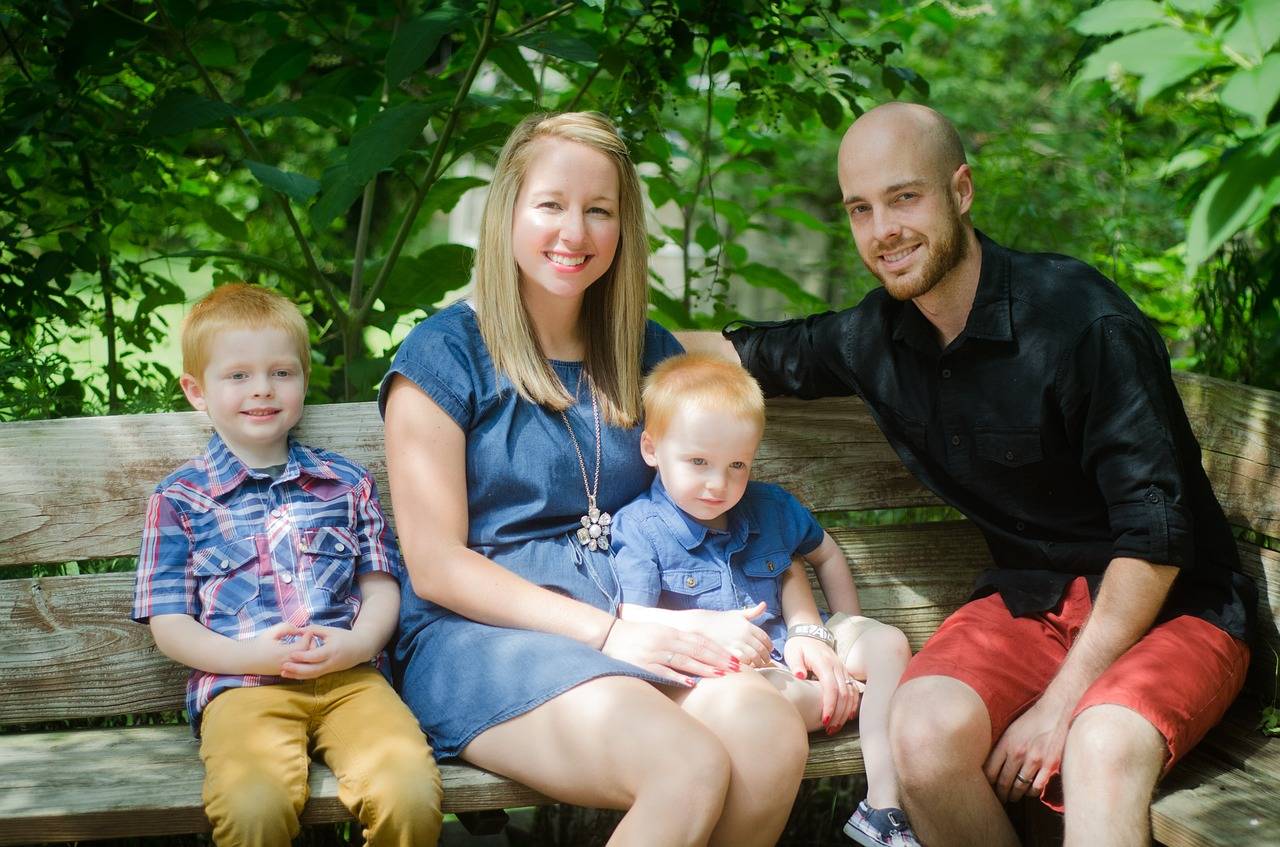Chickenpox, a common illness caused by the varicella-zoster virus, is often associated with itchy rashes and mild symptoms. However, it can lead to severe complications, particularly in young children, adults, and individuals with weakened immune systems.
The introduction of the chickenpox vaccine has significantly reduced the incidence and severity of the disease. In this post, we’ll explore how effective the chickenpox vaccine is in preventing severe illnesses, providing insights into its benefits, how it works, and its impact on public health.
Understanding Chickenpox and Its Complications
What is Chickenpox?
Chickenpox, known as varicella, is a highly contagious viral infection that affects children. It primarily manifests through an itchy, blister-like rash that spreads across the body. Additional symptoms include fever, fatigue, and loss of appetite.
Chickenpox is generally considered a mild illness but can be particularly severe in certain populations. Infants, teenagers, adults, pregnant women, and individuals with weakened immune systems are at higher risk for serious complications.
Potential Complications of Chickenpox
While chickenpox is often mild, it can cause severe complications, especially in certain groups. These complications include:
- Bacterial skin infections: When chickenpox blisters become infected with bacteria, it can lead to serious skin infections, such as cellulitis.
- Pneumonia: Severe lung infection that occurs when the varicella virus infects the lungs. It especially affects adults, pregnant women, and individuals with weakened immune systems.
- Encephalitis: This is an inflammation of the brain that can lead to seizures, neurological damage, or even death.
- Reye’s syndrome: A rare but serious condition that causes swelling in the liver and brain, and is associated with the use of aspirin in children recovering from a viral infection like chickenpox.
Why Vaccination is Crucial
Preventing chickenpox through vaccination is vital to avoid these severe complications. The vaccine reduces the risk of contracting the disease and significantly decreases the likelihood of severe outcomes in those infected individuals.
The Chickenpox Vaccine: An Overview
What is the Chickenpox Vaccine?
The chickenpox vaccine, also known as the varicella vaccine, was first introduced in the United States in 1995. It’s a live-attenuated vaccine, containing a weakened form of the varicella-zoster virus. This weakened virus can’t cause the disease in healthy individuals but is strong enough to stimulate the immune system to produce antibodies against it.
How Does the Chickenpox Vaccine Work?
The chickenpox vaccine exposes the immune system to a weakened form of the virus. When vaccinated, the body’s immune system responds by producing antibodies against the varicella-zoster virus, protecting against future infections.
If a vaccinated individual is later exposed to the virus, their immune system can quickly recognize and fight it off, preventing the disease or reducing its severity.
Dosage and Administration
The chickenpox vaccine is administered in two doses. The first is given to children between 12 and 15 months of age, and the second is administered between 4 and 6 years of age. Two doses are recommended for older children, teenagers, and adults who haven’t had chickenpox or been vaccinated, spaced at least four weeks.
Effectiveness of the Chickenpox Vaccine
1. Reducing the Incidence of Chickenpox
The chickenpox vaccine is highly effective in reducing the incidence of the disease. According to the Centers for Disease Control and Prevention (CDC), two doses are about 90% effective at preventing chickenpox. This means most individuals who receive the vaccine will not contract the disease.
And even among those who contract chickenpox despite being vaccinated, the disease is usually much milder.
2. Preventing Severe Illnesses
One of the most significant benefits of the chickenpox vaccine is its ability to prevent severe illnesses. Studies have shown that vaccinated individuals who contracted chickenpox generally experience a much milder form of the disease.
The vaccine reduces the risk of serious complications such as pneumonia, encephalitis, and bacterial infections. For instance, before the vaccine was introduced, chickenpox caused about 10,600 hospitalizations and 100 to 150 deaths each year in the US. Since the introduction of the vaccine, these numbers have dramatically decreased.
Vaccinated individuals who get chickenpox typically have fewer lesions, lower fever, and a shorter duration of illness than those who are unvaccinated.
3. Long-Term Protection
Research indicates that the chickenpox vaccine provides long-lasting immunity. While some breakthrough cases (cases where vaccinated individuals still get chickenpox) do occur, these cases are usually mild and less likely to result in complications.
The long-term protection offered by the vaccine is a significant benefit, reducing the likelihood of severe chickenpox cases over time.
Impact on Public Health
Herd Immunity
Widespread vaccination has led to herd immunity, a form of indirect protection that occurs when a large percentage of the population becomes immune to a disease. This reduces the spread of the virus, protecting those who cannot be vaccinated, such as infants, pregnant women, and individuals with compromised immune systems.
Herd immunity is crucial in preventing outbreaks and protecting vulnerable populations. When a high percentage of the community is vaccinated, it becomes difficult for the virus to spread, leading to fewer cases overall. This community-wide protection is one of the key benefits of the chickenpox vaccination program.
Decline in Hospitalizations and Deaths
The introduction of the chickenpox vaccine has resulted in a significant decline in hospitalizations and deaths due to chickenpox. The CDC reports a 90% reduction in chickenpox cases since the vaccine’s introduction. Before the vaccine, chickenpox caused about 10,600 hospitalizations and 100 to 150 deaths each year in the US.
Since the introduction of the vaccine, these numbers have dramatically decreased. Additionally, there has been a 90% decrease in hospitalizations and an 88% decrease in deaths caused by chickenpox. These statistics underscore the vaccine’s effectiveness in preventing severe illnesses and saving lives.
Economic Benefits
Vaccination has substantial economic benefits. The chickenpox vaccine has a positive financial impact. The vaccine decreases healthcare costs by reducing chickenpox cases and associated complications. This means fewer doctor visits, hospitalizations, treatments, missed work or school days, and lost workdays for parents caring for sick children.
This translates to significant cost savings for families and the healthcare system.
Addressing Concerns and Misconceptions
Vaccine Safety
The chickenpox vaccine is considered safe and effective. Most side effects are mild and temporary, such as soreness at the injection site or a mild rash. Serious side effects are rare. The benefits of vaccination far outweigh the risks, as the vaccine prevents severe disease and complications.
Common Misconceptions
Despite its proven effectiveness, there are still misconceptions about the chickenpox vaccine. Some parents believe that natural infection provides better immunity than vaccination. However, the risks associated with natural infection, including severe complications and death, far outweigh the benefits.
The vaccine provides strong and long-lasting immunity without the dangers of the disease.
Effectiveness in Adults
While chickenpox is more common in children, adults can also benefit from vaccination. Adults who have never had chickenpox or been vaccinated are at a higher risk of severe disease and complications. The vaccine is highly effective in adults and helps prevent serious illness.
Vaccine Hesitancy
Vaccine hesitancy, driven by misinformation and misconceptions about vaccine safety, affects vaccination rates. Rely on credible sources for information about the chickenpox vaccine and consult with healthcare providers about any concerns. Vaccination is a critical tool in preventing severe illnesses and protecting public health.
The Future of Chickenpox Prevention
Ongoing Research: Continuous research monitors the long-term effectiveness of the chickenpox vaccine. Studies are also conducted to understand better the vaccine’s impact on the incidence of shingles, a painful condition caused by the reactivation of the varicella-zoster virus.
Combination Vaccines: Combination vaccines are also developed, protecting against multiple diseases in a single shot. For example, the MMRV vaccine combines the measles, mumps, rubella, and varicella vaccines into one injection, reducing the number of shots needed and improving vaccination rates.
Global Vaccination Efforts: Efforts are being made to increase global vaccination rates. In many parts of the world, access to vaccines is limited, and chickenpox remains a significant health concern. International health organizations are working to improve the accessibility of vaccines and reduce the global burden of chickenpox.
Personal Stories: The Impact of Vaccination
A Parent’s Perspective
Sarah, a mother of two, shares her experience: “When my daughter was due for her vaccinations, I was a little nervous about the chickenpox vaccine. I had chickenpox as a child, and I remember it being quite uncomfortable.
However, after researching and talking to our pediatrician, I decided on the vaccine. I’m so glad I did. My daughter didn’t have any side effects, and now I have peace of mind knowing she’s protected from severe illness.”
A Healthcare Provider’s View
Dr. Emily Thompson, a pediatrician, emphasizes the importance of vaccination: “I’ve seen firsthand the difference the chickenpox vaccine has made. Before the vaccine, we would see numerous cases of chickenpox, some with severe complications.
Now, it’s rare to see a child with chickenpox, when we do, the cases are usually mild. The vaccine has been a game-changer in preventing severe illness and protecting public health.”
How to Ensure Your Child is Protected
- Staying on Schedule: Follow the recommended vaccination schedule. If your child misses a dose, talk to your healthcare provider about catching up on the vaccinations.
- Keeping Records: Record your child’s vaccinations, including the dates and types of vaccines received. This information can be helpful for future medical
 appointments and school enrollment.
appointments and school enrollment. - Educating Yourself and Others: Stay informed about the benefits of vaccination and share this information with others. Educating friends and family can help dispel myths and encourage more people to vaccinate their children, contributing to herd immunity and protecting the community.
How to Prepare for Your Child’s Vaccination
Getting your child vaccinated can be a smooth process with the right preparation. Here are some tips to help you get ready for the appointment:
- Talk to Your Child: Explain what to expect in simple language to help ease any anxiety.
- Bring Comfort Items: A favorite toy or blanket provides comfort during the vaccination.
- Stay Calm: Children can pick up on their parents’ anxiety. Staying calm helps reassure your child.
Managing Mild Side Effects of Vaccination
While serious side effects are rare, mild side effects like soreness or a low-grade fever can occur. Here’s how to manage them:
- Soreness: Apply a cool, damp cloth to the injection site to reduce pain and swelling.
- Fever: Ensure your child stays hydrated and consider giving them a fever-reducing medication upon the doctor’s advice.
- Rash: A mild rash appears at the injection site. It typically resolves on its own without treatment.
Importance of Follow-Up Vaccinations
The chickenpox vaccine is typically given in two doses for optimal protection. Ensuring your child receives both doses is crucial for long-term immunity and effective prevention of severe illnesses. The first dose is usually administered at 12-15 months and the second at 4-6 years of age.
If you miss a scheduled vaccination, reschedule as soon as possible. Keeping up with the vaccination schedule protects your child against chickenpox and its complications.
Ensure Your Child is Protected with Chickenpox Vaccine
The chickenpox vaccine has proven highly effective in preventing severe illnesses associated with the varicella-zoster virus. It has drastically reduced the incidence of chickenpox, hospitalizations, and deaths.
By understanding the benefits and effectiveness of the chickenpox vaccine, we can make informed decisions about vaccination and contribute to public health efforts to control and prevent the spread of this contagious disease. For more detailed information on vaccines and their benefits, check out our other articles on Omegapediatrics.com.
- Varicella: Unveiling the Chickenpox Virus in Children
- The Essential Guide to Vaccines: What New Moms Need to Know
Omega Pediatrics provides comprehensive resources and support for parents and caregivers, helping them navigate the vaccination process and protect their children from preventable diseases.



 appointments and school enrollment.
appointments and school enrollment.


